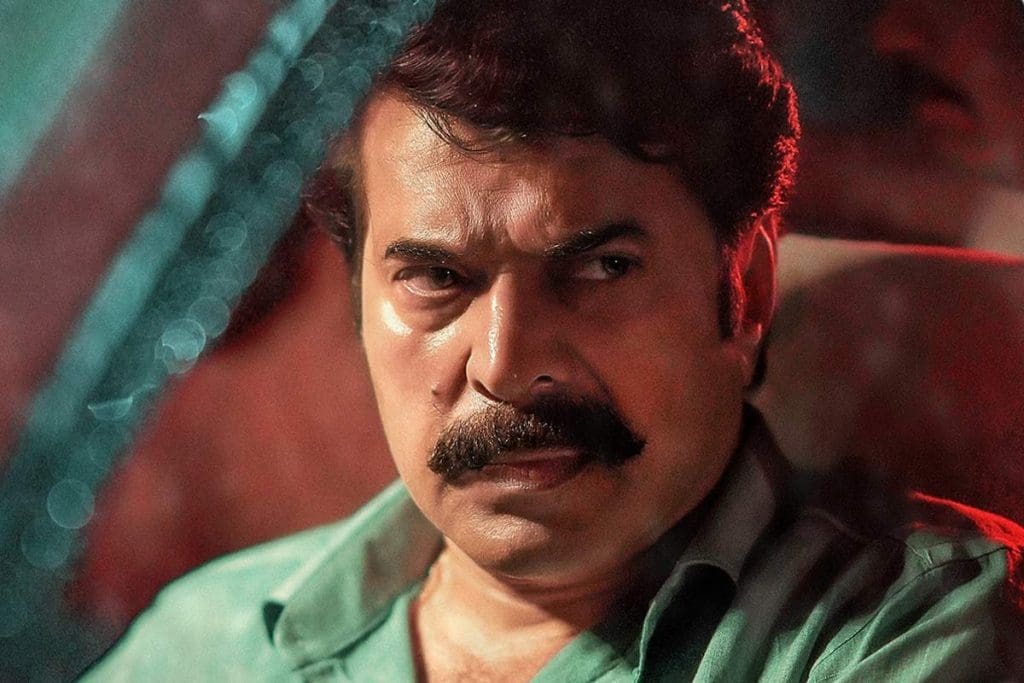
Puzhu (meaning worm) is a 2022 Malayalam flick jointly written by Harshad, Sharfu and Suhas and directed by debutante Ratheena, with Mammootty as Kuttan, Parvathy Thiruvothu as Bharathi, Appunni Sasi as Kuttappan aka KP and Vasudev Sajeesh as Kichu in the lead roles. The movie is a powerful anti-caste declaration against caste Hindu hegemony maintained in Indian society, even within the film industry that typically caters to the Savarna gaze.
Here, the makers rightfully reverse the gaze and place the role of the Brahman patriarch Kuttan, a former IPS officer played by Mammootty as the subject of scrutiny, contrary to the upper caste angry young man figure, popular in the 70s and 80s Bollywood, who ‘saves’ the downtrodden thereby evading the question of caste.
The plot predominantly deals with the anxieties arising from the idea of caste ‘purity’ held close by Kuttan and his family which particularly gets triggered when his younger sister Bharathi marries her lover KP, a Dalit theatre artist, after the death of her first husband. We see the couple facing overt and covert insults like when the sub-registrar officer takes one look at the duo and passes a crude joke to which KP responds by slapping him.
Kuttan feels the obsessive need for order. He also exercises an absurd amount of control, dangerously bordering along the lines of emotional abuse, over all aspects of his son Kichu’s life. Once when Kichu loses a white chess piece, he is ordered to find it and bring it home no matter what. He is also made to write ‘tomato is a vegetable’ 500 times as imposition after he innocently blurts out that it’s a fruit. In one of the scenes where Kuttan reprimands his son not to eat from other children’s tiffins, we see that the former pass on caste norms to the child from a very young age through such seemingly harmless disciplinarian tactics.
Exercising superiority and entitlement, even over one’s own child, is rooted in caste privilege. After his mother’s death, Kichu also doesn’t have anyone to turn to for emotional support especially when there is always a sense of forced harmony and monotony in the household instead of peace.
Kuttan lives in that particular apartment only because it is inhabited by ‘our people’ (read: Brahmins and other upper castes). The movie subtly hints at Brahmin aesthetics such as the celebration of upanayanam (sacred thread ceremony) and how the event acts as a catalyst to foster (upper caste) familial connections.
He treats all those who fall outside his own caste group with utmost contempt and distaste, right from the delivery boy carrying a fried chicken in the elevator to the Muslim businessman, Jamal who has previously run into grave financial loss because of him and a former factory engineer who he keeps torturing psychologically until he commits suicide. The only time you feel a sense of pity towards Kuttan is when towards the end of the movie he tells his son that he’s not a bad human being. This scene comes right after his explosive reaction towards Bharathi and her husband after they share the news of her pregnancy.
Puzhu also touches upon a theme that is a little unfamiliar to the Malayali audience. It clearly shows how Muslims are often scapegoated by the State. Kabir, a pharmacist is picked up by the police under false charges of a bombing case.
This portrayal is very reminiscent of and relevant to the current scenario in our country. Hence, Kuttan the IPS officer epitomizes the violent Brahmanical state that incarcerates innocent Muslims and Dalits for the crimes committed by caste Hindus.
Kuttan has immense fears about how his past actions are returning to haunt him when there are several attempts made to kill him. In the scenes leading up to the climax where Kuttan eventually breathes his last, we realize that it was Ameer, Kabir’s son who ultimately takes his revenge against Kuttan. None of the characters in the movie who hail from an oppressed background is reduced to their victimization. Instead, they assert their own agency, including Ameer, who rightfully wages his resistance against the caste Hindu oppressor(s).
Right-wing sympathiser and Savarna rights upholder Rahul Easwar claiming that the movie villainises the entire Brahmin community is proof that it has been successful in openly stating an uncomfortable truth. The movie fits into a larger political canvas that looks into how the majoritarian Hindu nation-state thrives by othering minority groups and further oppressing them. It is also interesting to note the emergence of discourses revolving Dalit-Muslim identity politics in the post Mandal era that manifests itself in the form of movies, music etc as a result of the production of knowledge pertaining to the same.
Karthika Jayakumar is a post-graduate student of Media Studies at University of Hyderabad (UoH)



